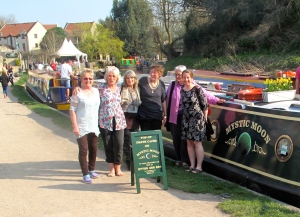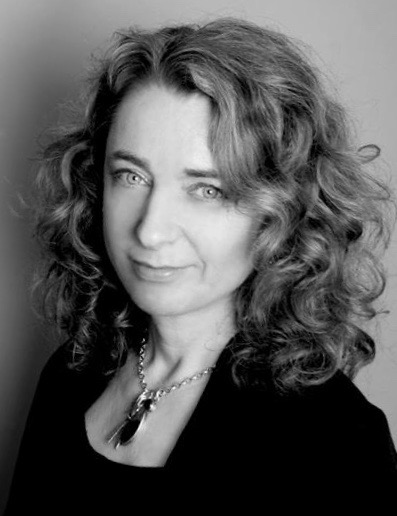Last week was a bit of an emotional roller coaster for me. So, while I applaud Lord Richard Layard’s enthusiasm for launching his Action for Happiness movement this week (inspired by Gretchin Rubin’s Happiness Project), I do wonder whether those in the government pursuing this agenda understand just how complex, contradictory and sometimes dark the pursuit of happiness can be.
In fact, I doubt that many of us are capable of maintaining a constant state of happiness (I hope that’s not what Lord Layard is intending). For example, today’s BBC news – Two British men shot dead in Florida; Girls behaviour in schools deterioating; Deadly attack on Afghan ministry; Japanese facing nuclear crisis from crippled Fukushima plant. I haven’t even got to what’s happening in Libya – shows that human nature is simply not constructed that way. The dark side will out.
Carl Jung the great twentieth-century Swiss psychiatrist, captured brilliantly the belief that only when someone had personally experienced the full range of human behaviour, both good and evil, could they ‘reap richer stores of knowledge than text-books of foot thick, and he will know how to doctor the sick with a real knowledge of the human soul.’
Speaking as a psychotherapist, and also a person who has learned the hard way, I am fully-signed up to Jung’s philosophy that life is a journey of self-understanding. Happiness develops as we learn to accept our weaknesses and strengths, and admit that we have the ability to hate and destroy just as much as we have the capacity to love. It’s only then that we can learn to make informed choices, and take responsibility for what we create in our lives.
But this does mean stepping into the void to do so. Helen Keller, who more than a hundred years ago in the US was the first deaf and blind person ever to gain a university degree, said, ‘Character cannot be developed in ease and quiet. Only through experience of trial and suffering can the soul be strengthened, vision cleared, ambition inspired, and success achieved.’
So how do these profound life experiences fit in with the British Government’s apparent enthusiasm for measuring our happiness, especially given the way we in the West live by a ‘must-have-it-now’ mentality?
This mindset was worryingly summed up for me last week by an A’ level student, who was a member of the Religion Studies group I was talking to about the end-of-life research study I have been involved with over the past six years, led by Dr Peter Fenwick.
The students and I were discussing how it’s impossible for anyone to go through life without experiencing the death of someone they love. The student suddenly asked, ‘So how can you fix life then when it goes wrong?’ ‘You can’t,’ I said. ‘You just have to learn from it.’ He looked perplexed and crestfallen, and immediately reached for his computer, as if it was a baby’s comfort blanket.
Hmm, I thought, this student is seventeen, and seems to be completely unprepared for what lies ahead. But, I realised, he was weaned and raised on the explosion of multi-media communication technology that has happened over the past twenty years. His whole world centres around gaining immediate internet access to vast of amounts of global information as well as a myriad of social networking sites (unimaginable when I was his age), and it’s this that makes him happy – at the moment anyway.
But how does this prepare him for the very real prospect, given the current economical climate, of being unemployed, whether or not he can afford to go to university? How is he going to handle the reality that life isn’t about instant gratification, or that being happy is a life-long process, involving a lot of personal development, which isn’t about turning on a computer or sending a text message?
I also had a lesson on how happiness can be killed stone dead. As part of my psychotherapy work, I provide critical incident support when, for example, there’s been a fatal industrial accident, such as one that happened earlier this week. ‘I was just sitting in a beer garden having a really nice time with my mate,’ a grief-stricken colleague of the person who had died told me, ‘and then the phone call came through. I couldn’t believe he had been killed. Nothing makes sense anymore.’
Two days ago I had my own personal experience of how happiness can change in a heartbeat. I had just heard that my book, Sex, Meaning and the Menopause is to be serialised in the Daily Mail in May. Thrilled and excited, I immediately emailed some friends. One responded ‘great’, and then told me that a very old mutual friend had been admitted into intensive care and was battling to stay alive. I was so shocked that my excitement about the book just drained away. My sick friend’s welfare became much more important.
Later I called my friend to find out more about how our mutual friend was faring. ‘Sorry to put such a dampener on your book,’ she said. ‘That’s okay,’ I replied. ‘It’s life doing what it does, that’s all.’
It put me in mind of a wise comment made by Rosie Campbell, Director of Campbell Keegan, a market research company, on LinkedIn. ‘If only we’d got better at fostering societal happiness and wellbeing, rather than just measuring it,’ she said. ‘Enough to make you quite glum.’
Personally, I fully intend to support Lord Layard’s vision for making us happier, but I am also aware of what an undertaking this is going to be.






